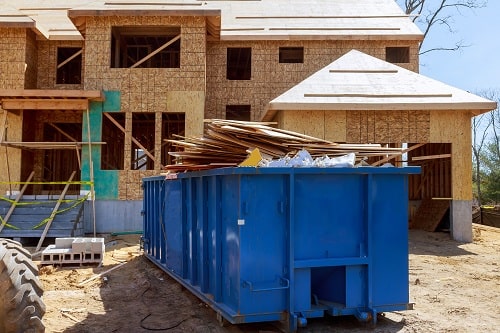Waste products can be managed from the beginning of any project. In construction firms, a construction professional knows better that if practices are emphasized, they can lead to better results in the end. The first step is to track the amount of waste products your construction site generates.
When you already have an estimate regarding the volume of waste you produce a day or after a week, you can come up with solutions on how to manage them well. Tracking your waste and recycling products provides a foundation for a successful waste management program. You can check online for waste solutions service providers or visit Cobra Waste, to help you customize a waste management solution that suits your needs.
If you’ve been contemplating additional ways to manage waste products better, here are some suggestions on how a construction firm can handle it efficiently:
1. Plan Accordingly
Planning a sustainable building project begins way before the actual work is done in the ground. Project managers are responsible for coming up with reasonable blueprints that cover all the areas including the dumping sites. Thorough planning and proper strategy mean fewer mistakes in the future.
Before construction begins ensure to get materials that are specifically needed for building, don’t overspend on materials. When planning for construction you can include the following practices to reduce waste disposal in the long run, educate the workers on sorting waste regularly, buy and use recyclable material, limit ordering the materials needed, and provide separate waste bins for recycling.
Also, it’s advised to use construction equipment that, if widely adopted, could help the company meet its sustainability objectives while at the same time improving the machines’ performance.
2. Organizing Construction Site
It’s vital that your construction site is organized to lessen mistakes or errors from happening during the course of the project. As a construction manager labeling and separating your recyclable and waste materials from each other will prevent confusion and increase productivity in the long run. Doing this will help you manage your site properly with no difficulties.
Also, organizing your construction site will save your workers time from going back and forth sorting used materials. Keep in mind that time saved equates to money saved for your company.

3. Choose Vendors Sensibly
If you have attainable goals for your construction project, it’s best to choose vendors who will assist your target goals and purpose. Moreover, you need to acquire vendors who would help in speeding up achieving your intentions and project requirements.
Vendors need to be flexible enough to sort out your recycling materials after they have emptied their containers. Vendors offer a single-stream recycling option so you don’t have to opt for other people to sort them. Even though this option can be expensive, it’ll save you time and help you achieve your goals more efficiently.
4. Re-use And Recycle Salvageable Materials
In construction firms, there are always materials that can be re-used and recycled. For instance, metal, paper, plastics, window glass, wood, and cardboard, these materials can be recycled to reduce waste products on the site.
Placing and naming a recycling bin on the job site will make work easier for the workers to sort the materials respectively.
Also, there are materials that can be re-used such as gravel and concrete that can be used for backfilling instead of purchasing additional dirt in constructing a firm foundation. You can also re-sell your unused materials to reduce waste materials on the site.
5. Know Local Recycling
Look into local recycling and demolition services and inquire about the kind of materials they accept. Ensure that they can take in mixed debris so that you don’t have to sift through the debris. Additionally, these local recyclers charge lower rates than landfills, so the more you recycle the lesser waste materials you dispose of. That said, doing this method also decreases the carbon footprint generated by your actions.
6. Deconstruction Instead of Demolition
Deconstruction is selectively disassembling materials from a building piece by piece and eliminating waste products. Deconstruction is known to be an alternative for demolition and a reliable reusable strategy. The reusable materials can be transformed into valuable resources that can be sold or used for other purposes.
The difference between deconstruction and demolition is that demolition has a lower chance of recovering materials that can be reusable while deconstructing focuses on separating the usable from disposal ones.
Deconstruction benefits not only the construction company but the public environment by reducing toxic airborne pollutants.
Conclusion
The increase in reusing materials will surely lessen your overhead expenses in hiring a waste disposal service provider for your construction site. It’s also a great idea to donate materials instead of throwing them off to claim tax benefits from them.
As mentioned in this article, appropriate and systematic planning in managing your waste better is the key to implementing new practices to achieve cost-efficient waste management and environmentally friendly construction site.




























